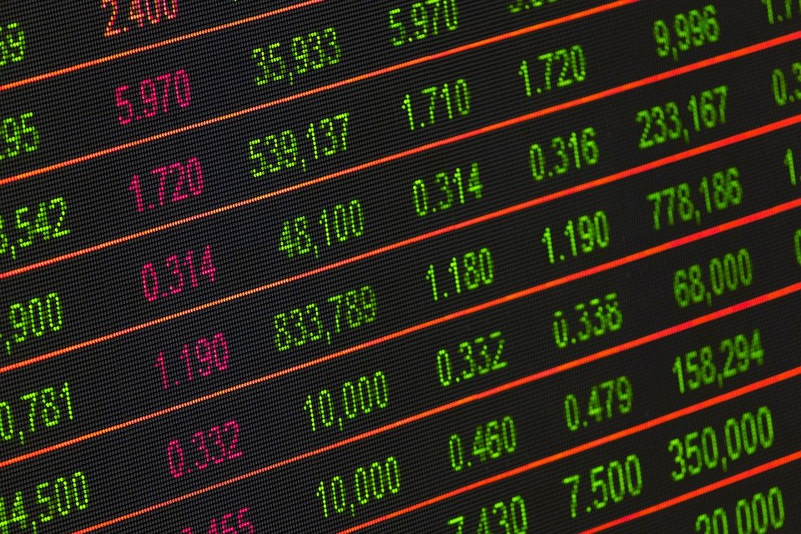
It's set to be an incredibly busy few weeks in the financial markets. Aside from the various health concerns that are spreading worldwide, there are plenty of headline announcements and statements that are expected to have a big say in the movements of financial markets. If you are wondering what the major events and hurdles are likely to be for retail investors, read on as we detail what you need to monitor the short-to-medium term.
The UK's Budget 2020
It promises to be a fascinating period for the British economy, with all eyes firmly fixed on the UK government's new Chancellor of the Exchequer, Rishi Sunak. Following the shock resignation of Sajid Javid during Prime Minister Boris Johnson's cabinet reshuffle, Mr Sunak was selected as Javid's successor, having been handed a major promotion from his former junior ministerial roles. The pound soared significantly upon the appointment of Sunak, reaching €1.20 for the first time in two months, as many investors now anticipate more aggressive fiscal stimulus. That's because Prime Minister Johnson wants to bring the Treasury and Number 10 together over the Budget, giving him a firmer handle on driving through infrastructure spending plans that could make cuts to interest rates much less probable.
Sunak has confirmed that the date for the Budget 2020 will remain in place for Wednesday 11th March, which gives him less than three weeks to prepare his fiscal programme for the 2020/21 financial year. His most recent comments about "delivering on the promises made to the British people" and "levelling up" the country suggest that he could relax more budget constraints across a broader spectrum of departments in Whitehall, compared with his predecessor.
Curbing the spread of the new coronavirus
There is no doubt that the outbreak of the new coronavirus has had a "chilling effect" on the global economy. That's the view of leading economic forecasters, Oxford Economics, who fear that a potential pandemic could hit the global economy by over $1 trillion in lost output. The forecaster's "chilling" review of the current state of play is founded upon the closure of many Chinese factories, with many countries heavily reliant on importing the components and goods manufactured within these four walls.
Some of the world's biggest companies have had to admit they will be unable to hit their quarterly sales targets, including Apple, who cited "temporarily constrained" supply chains. In the UK, Jaguar Land Rover has admitted it could run out of car parts from China in the coming days if output in the Far East remains at 30-50%. Until we receive news of coronavirus being curbed, forecasts of global GDP falling by as much as $400bn this year seem fair.
PMI data for the eurozone

Source: Pixabay
All the early indicators for the upcoming Purchasing Managers' Index (PMI) for the eurozone point to a decline in manufacturing and services across the continent. If the PMI data is as feared, it would suggest that the coronavirus damage in China is already harming business sentiment in the west. Manufacturers in Germany are getting particularly twitchy about the outbreak, given that their automotive factories are heavily reliant on parts and components from China, as well as demand from consumers for their vehicles. Volkswagen now sells almost half of its vehicles in the Far East.
Declining PMI would be a hammer blow to Europe, given that the euro has fallen badly against the US dollar since the turn of the New Year. If the spread of coronavirus does become a pandemic, there is very little the European Union (EU) can do. Several years of quantitative easing and rock-bottom interest rates mean the European Central Bank (ECB) would have few options at their disposal.
The ongoing US-China trade negotiations
After a bruising 2019, which saw the world's two biggest economic superpowers escalate the most significant trade war in recent times, the United States and China both agreed phase one of a new trade deal in January, which is considered to be the first step towards a total de-escalation of the uncertainty that has lingered for over a year-and-a-half. A quick glance at the S&P 500, which is one of the most popular indices in index trading, providing an indication on the health of America's biggest corporations listed on the New York Stock Exchange, shows that investor confidence in major US firms has risen sharply in the last 12 months.
Despite the positive market sentiment regarding President Trump's resolve against the Chinese, much uncertainty lingers regarding last month's agreement. While the agreement saw China commit to imports from the US, it was unclear whether retaliatory tariffs would still be applied to US goods. Until there is clarity on the US-China trade talks, the global economy remains on tenterhooks.
© 2025 HNGN, All rights reserved. Do not reproduce without permission.








